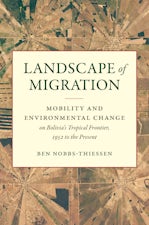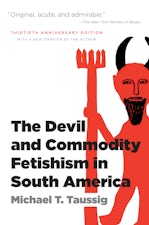Making the Green Revolution
Agriculture and Conflict in Colombia
By Timothy W. Lorek
342 pp., 6.125 x 9.25, 24 halftones, 3 maps, notes, bibl., index
-
Paperback ISBN: 978-1-4696-7382-0
Published: May 2023 -
E-book EPUB ISBN: 978-1-4696-7383-7
Published: April 2023 -
E-book PDF ISBN: 979-8-8908-6080-4
Published: April 2023 -
Hardcover ISBN: 978-1-4696-7381-3
Published: May 2023
Flows, Migrations, and Exchanges
Buy this Book
- Paperback $34.95
- Hardcover $99.00
- E-Book $26.99
For Professors:
Free E-Exam Copies
Utilizing archives in Colombia, Puerto Rico, and the United States, Lorek tracks the paradoxical but intertwined twentieth-century processes that produced both CIAT and sugar in the Cauca Valley. This history reveals how Colombians contributed to the rise of a global Green Revolution and how that international process in turn intersected with a complex and long-running rural conflict in Colombia.
About the Author
Timothy W. Lorek is assistant professor of history at the College of St. Scholastica.
For more information about Timothy W. Lorek, visit
the
Author
Page.
Reviews
"An innovative study filled with graceful and accessible writing. Timothy Lorek offers new perspectives on the Green Revolution, emphasizing the place of Colombia and CIAT within it. This will be a valuable addition to the literature."—Stuart McCook, University of Guelph
"This innovative and persuasive book reveals the deep history of Latin American innovation and experimentation in agricultural science that preceded U.S. Cold War interventions by many decades, arguing for the vital importance of Colombia and Colombian actors and institutions to the global campaign of agricultural transformation that later became known as the Green Revolution."—Tore C. Olsson, author of Agrarian Crossings: Reformers and the Remaking of the US and Mexican Countryside



